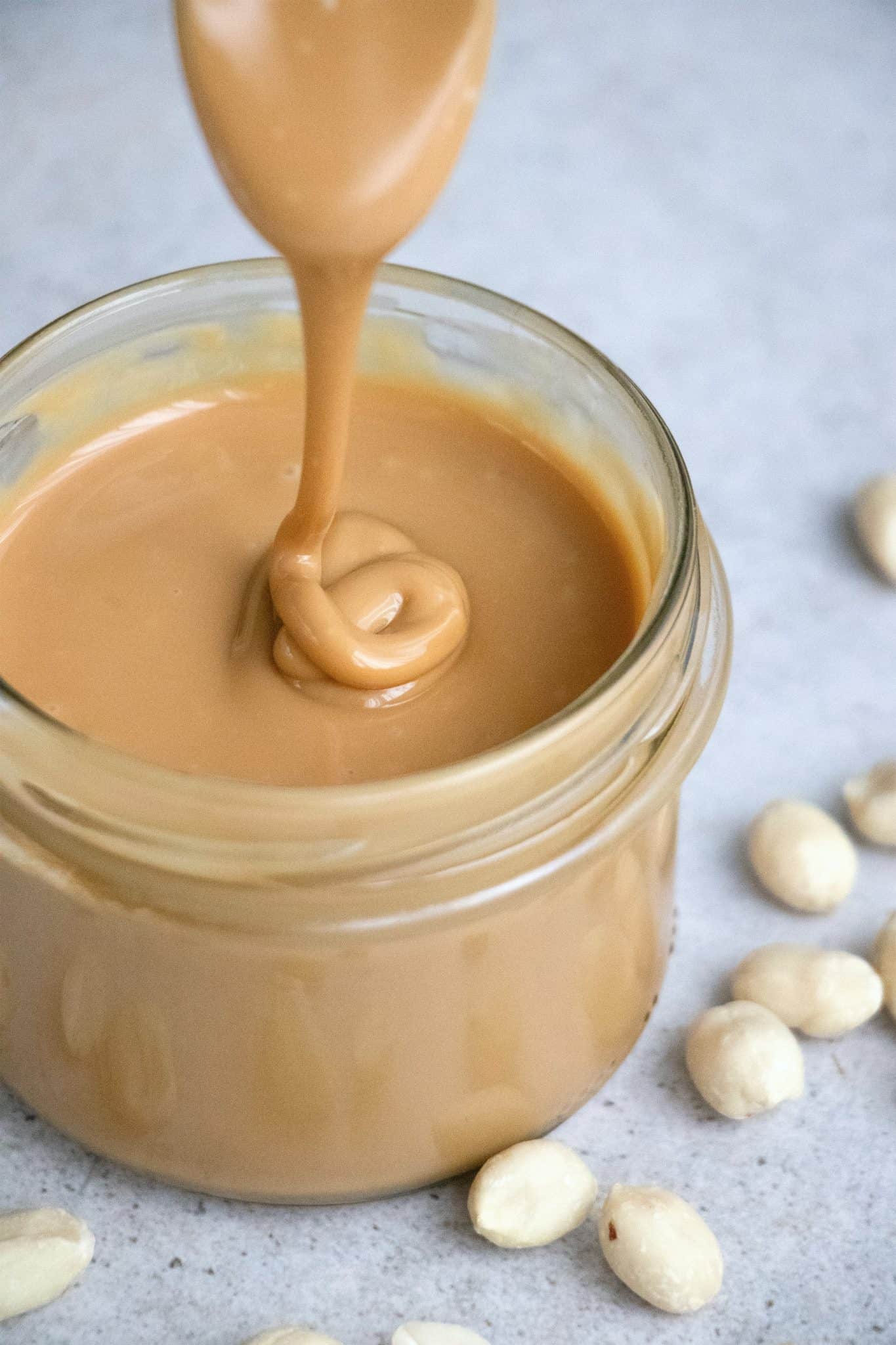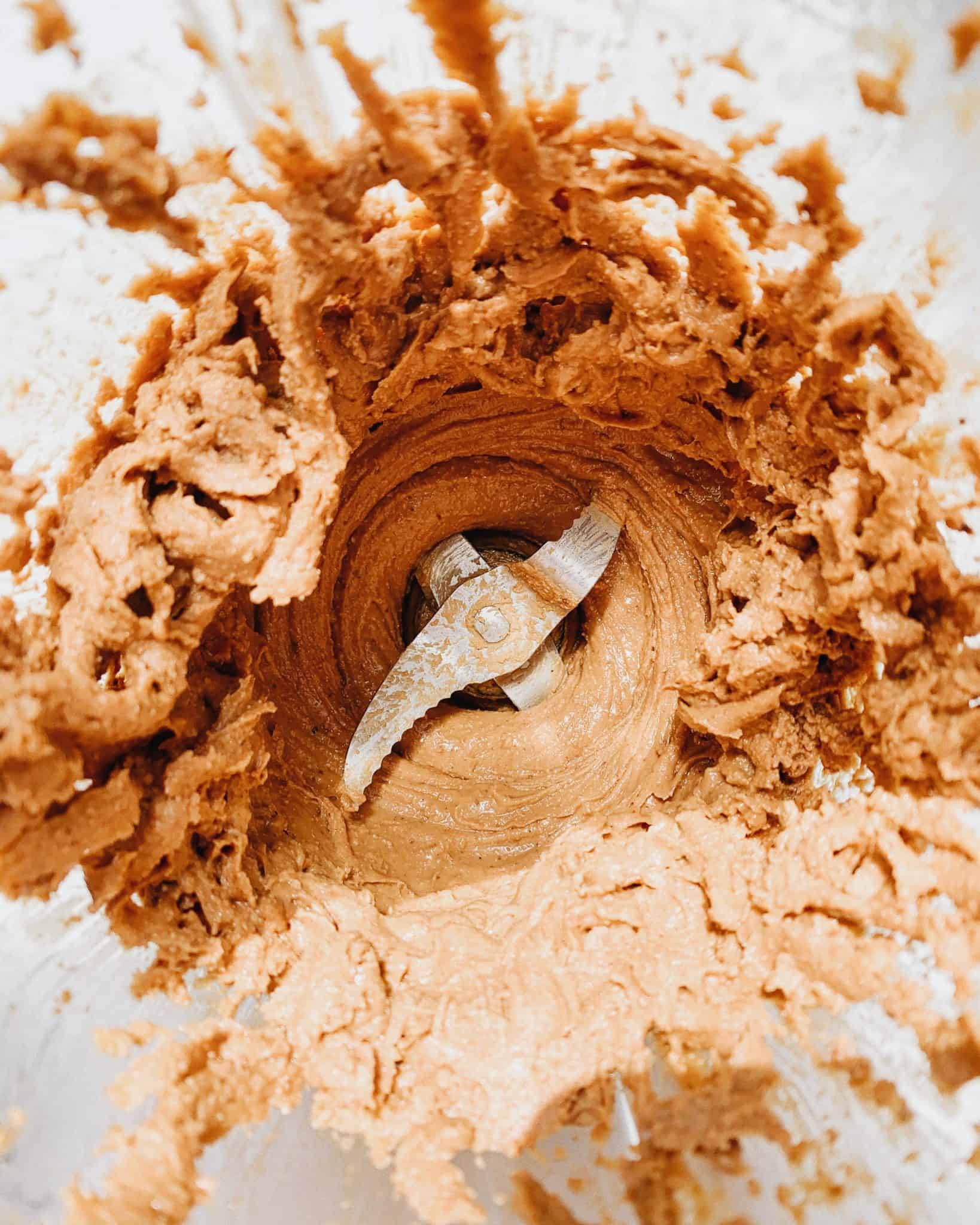Peanut butter and jelly is classic kid food. And because of that, it's also considered comfort food for many of us. It's also not known for being very healthy. That doesn't have to be the case though. Here's how to choose the best peanut butter for heart health.
Peanuts have an excellent nutrient profile. They are high in protein and healthy mono- and polyunsaturated fats, as well as fiber and a variety of vitamins and minerals. By extension, peanut butter also has the potential to be an excellently healthy food. The issue we run into, is that there are often many extra ingredients added. Some for texture, some for flavor, and some for shelf life.

What to look for in a healthy peanut butter
Minimal ingredients
To make peanut butter, you really only need one thing - peanuts. Other ingredients you may see include salt, different types of sugar, and emulsifiers to keep everything from separating. The amount of added sugar is usually even higher in reduced fat peanut butter.
Just because the peanut butter is labeled as "natural" doesn't automatically mean it doesn't have extra ingredients you don't want. Make sure to double check the ingredient list. Find ones that have the least number of ingredients.
Added sugar or zero-calorie sweeteners
Sugar is added to so many foods these days, it pays to avoid it where you can. Especially because too much added sugar can reek havoc on heart health! Peanut butter doesn't need any sugar - and it's usually paired with jelly anyway, which has enough sugar for them both! Look at the nutrition label under added sugar (not total sugar) for this. You can also find added sugars in the ingredient list, under names such as sugar, molasses, corn syrup (and high fructose corn syrup), and maltodextrin. You may also see zero-calorie sweeteners like splenda/sucralose, erythritol, xylitol, etc. Those aren't needed, either.
Added oils
As I mentioned earlier, peanuts already contain a great amount of healthy fats. There is no need for additional oil. Oils are often added for texture and/or to make the peanut butter more solid. Palm oil is frequently used. You may find partially hydrogenated oils in peanut butter, too. Avoid those at all cost.
And while we're on the subject, don't opt for reduced fat peanut butters. They usually aren't much lower in calories, and the healthy fats tend to get replaced with sugar! Compare labels the next time you're at the store.
Other ingredients
You'll probably see a whole lot of other ingredients in certain brands, too. These are mostly emulsifiers (to keep the peanut butter from separating), and sometimes vitamins and minerals. While I don't advocate avoiding an ingredient just because you can't pronounce it, in the case of peanut butter, less is more.
Additional ingredients that are great, include flax seed, chia seed, and other nuts or seeds, like almonds, cashews, etc.
Selected Healthy Peanut Butter Brands
Here are some brands to check out:
- Costco's Kirkland Signature Peanut Butter
- Smucker's Natural Peanut Butter
- Once Again Organic Creamy Peanut Butter (there is a crunchy version, too!)
- MaraNatha Organic Creamy Peanut Butter (not the no-stir variety)
Mixing Natural Peanut Butter
So, you purchased a brand of peanut butter that probably says "natural" on the front, and has very minimal ingredients. Awesome! You probably noticed they have a layer of oil at the top that you have to mix in.
I know, I know. It's a pain to mix those things. But it's worth it, I promise! (By the way - I hate mixing those too!)
Here's how to make it a tad less painful:
- Dump the entire contents of the jar into your food processor, making sure to scrape every little bit you can out. A wooden spoon is helpful for this.
- Run the food processor on high for a few minutes, until everything is mixed thoroughly, and there are no more lumps or chunks.
- Use a rubber spatula to scrape the now-mixed peanut butter back into the jar.
- Refrigerate! Refrigerating will keep the peanut butter from separating again.

For all our heart healthy peanut butter recipes, be sure to visit our peanut butter archives! Need something to pair your peanut butter with? Learn more about choosing a healthy jelly.
What is your favorite brand of peanut butter for heart health, and what is your favorite way to eat it? Tell me in the comments!

Leave a Reply